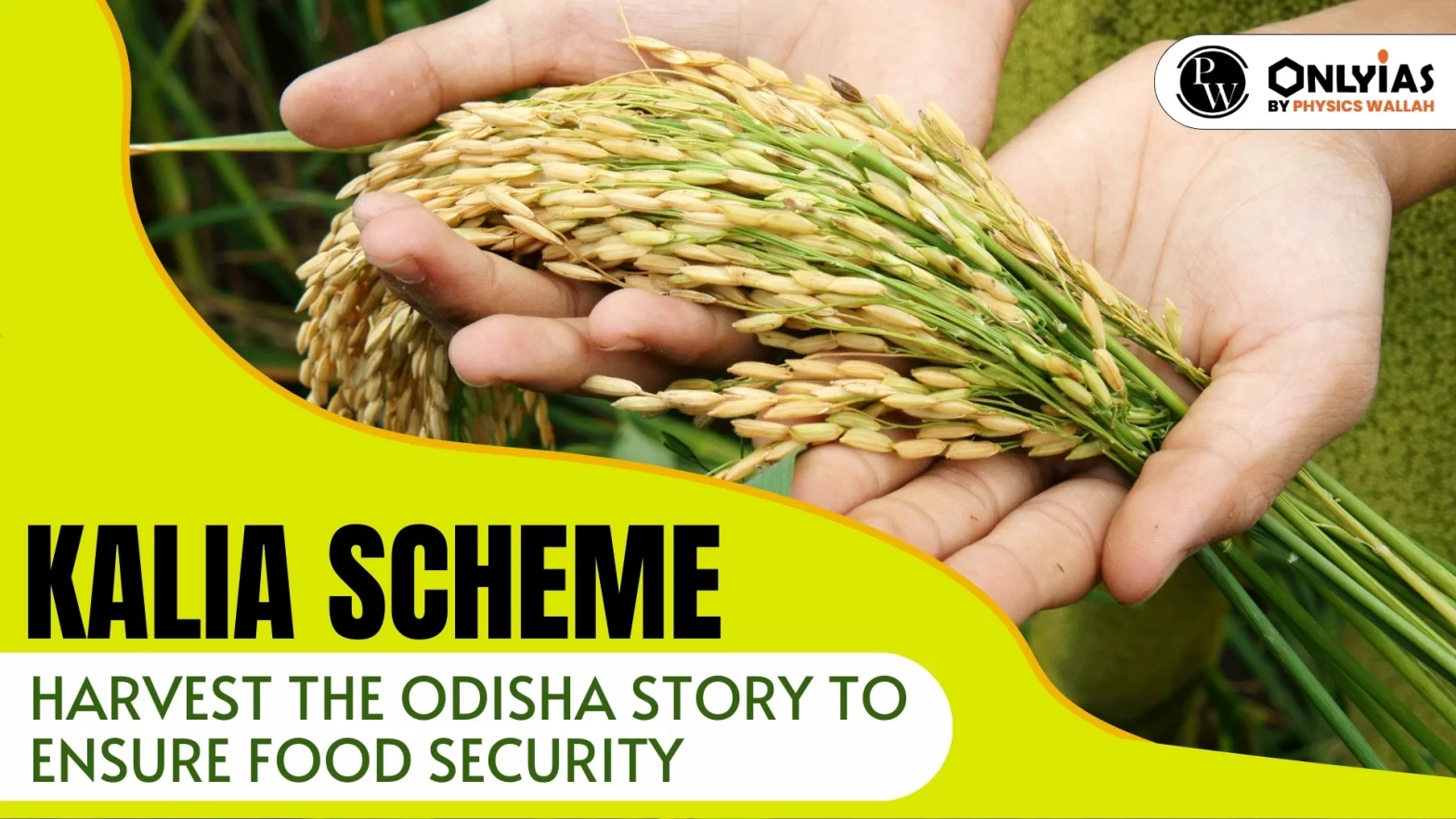Context: This article is based on an Editorial “Harvest the Odisha story to ensure food security” which was published in the Hindu. The 2023 United Nations Climate Change Conference, in Dubai, is raising concerns over the worsening impact of the climate crisis, which is severely impacting the planet, peace, and prosperity.
- As the world witnesses a worsening global food crisis due to the climate crisis, Odisha’s achievement in climate-proofing its agricultural system (Kalia Scheme) is gaining prominence as a great model and a source of ideas for creating food security based on equity and sustainability.
| Relevancy for Prelims: SDG 2, World Food Programme, KALIA Scheme, Rice Fortification and Crop Weather Watch Group.
Relevancy for Mains: Significance of Odisha’s model to challenge global climate change. |
Arising Global Food Concerns of the Present
- Rise of Disasters: Disasters are projected to increase to 560 per year, that is 1.5 per day.
- Decline in Food Productivity: Due to global warming, food productivity is expected to decline by 21%.
- Rise in Hunger: Due to climate change, hunger and malnutrition are expected to grow by 20%.
Also Read: Global Hunger Index 2023
About Kalia Scheme of Odisha
- Focus on Specific Groups: Focusing agricultural development efforts on small and marginal farmers through schemes like Krushak Assistance for Livelihood and Income Augmentation (KALIA scheme) that boost incomes.
- Investing in large-scale farm mechanization with women-friendly equipment.
- This has directly contributed to strengthening their food security and creating resilient livelihoods.
- Use of Technology: Massively increasing rice productivity through improving cultivation techniques and disseminating best practices.
- In the past two decades, Odisha has moved from a rice-importing state to its highest production on record (13.606 million tonnes).
- Social protection initiatives like rice fortification to tackle malnutrition.
- Leveraging technology for e-pest surveillance and better water management.
- Diversity with Resilience: Diversifying crops and promoting climate resilience via initiatives like the Odisha Millets Mission.
- Building climate resilience through ground-up efforts like the Crop Weather Watch Group.
- The approach towards climate resilience is being developed from the bottom up.
- Training farmers extensively in climate-resilient agricultural practices.
- Action Plan: Developing a comprehensive Climate Change Action Plan covering multiple vulnerable sectors.
- Crop planning at the district level based on agro-climatic conditions.
- Promoting integrated farming systems and zero-budget natural farming.
- Robust implementation of National Food Security Act provisions.
- Partnering with the World Food Programme on pilots to improve nutrition security.
- Monitoring with Innovation: Consistent monitoring and review of food production and agriculture schemes.
- Innovation in food security programs like applying biometrics in public distribution.
- Monitoring helps the authorities to take necessary measures during adverse weather conditions such as cyclones, floods, and droughts, which are frequent in the State.
Must Read: World Food India 2023 And The Indian Food Industry
The Achievements
- Deficiency to Sufficiency: Earlier, Kalahandi district was known as the “land of hunger,” but has now been transformed into Odisha’s rice bowl.
- Towards Targeted Goals: Odisha’s commitment towards achieving the ‘Zero Hunger’ goal of Sustainable Development Goal (SDG) 2.
What Needs to Learn?
- Responsibility Orientation: Various departments and agencies are responsible for implementing the activities identified in the plan, which are being monitored by a committee headed by the Chief Secretary.
- Rational Planning and Implementation: Crop planning is done at the district level by officials of allied departments, considering the agro-climatic zone.
- Targeted Approach: Training farmers in crop-specific techniques, including integrated nutrient and pest management, has boosted food grains production.
Conclusion:
Odisha’s transformative journey presents a unique development model for other States and the World in the context of the challenges of global climate change, which is mainly based on: how the State strengthened food security by transforming agriculture through a community-driven approach and built resilience to climate impact.
![]() 12 Dec 2023
12 Dec 2023
